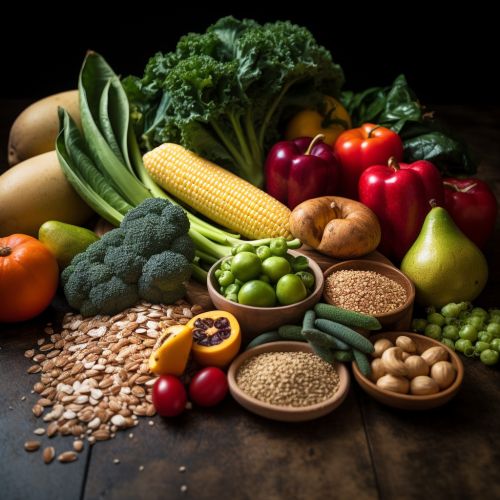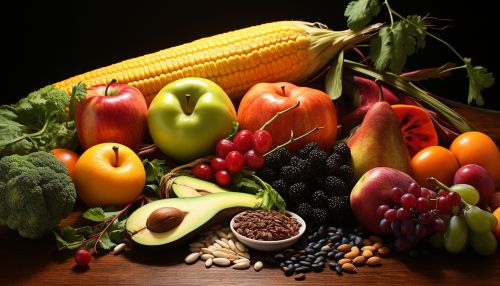Prebiotics
Definition and Overview
Prebiotics are a type of dietary fiber that act as a food source for the beneficial bacteria in your gut. They are non-digestible carbohydrates that are used up by gut bacteria to produce various health benefits. Prebiotics are found in many fruits and vegetables, especially those that contain complex carbohydrates, such as fiber and resistant starch. These substances get through the stomach and small intestine undigested, and when they reach the colon, they are fermented by the gut microflora, helping the bacteria to grow and thrive.


Types of Prebiotics
There are several types of prebiotics, including inulin, fructooligosaccharides (FOS), galactooligosaccharides (GOS), and others. These types of prebiotics are classified based on their chemical structure, and each has different effects on the body.
Inulin
Inulin is a type of prebiotic fiber that is found in many plants, but the highest quantities are found in chicory root and Jerusalem artichokes. It has a creamy texture and is often used as a fat replacement in processed foods. Inulin is also used as a supplement for its prebiotic effects.
Fructooligosaccharides (FOS)
Fructooligosaccharides (FOS) are a type of prebiotic that can be found naturally in various fruits and vegetables, including bananas, onions, and garlic. They can also be synthesized for use as a supplement or food additive.
Galactooligosaccharides (GOS)
Galactooligosaccharides (GOS) are a type of prebiotic that is found in human breast milk and are believed to play a crucial role in the development of an infant's gut microbiota. They can also be synthesized for use as a supplement or food additive.
Health Benefits of Prebiotics
Prebiotics have been linked to a variety of health benefits, including improved gut health, enhanced immune function, better nutrient absorption, and reduced risk of certain diseases.
Improved Gut Health
Prebiotics act as a food source for beneficial gut bacteria, helping them to grow and thrive. This can lead to an improved balance of gut bacteria, which is associated with better overall gut health and reduced risk of conditions like Irritable Bowel Syndrome (IBS) and Inflammatory Bowel Disease (IBD).
Enhanced Immune Function
The gut microbiota plays a crucial role in the immune system, and a healthy balance of gut bacteria has been linked to enhanced immune function. By promoting the growth of beneficial gut bacteria, prebiotics can help to support the immune system and protect against infection.
Better Nutrient Absorption
Prebiotics can help to improve the absorption of certain nutrients, including calcium and magnesium. This is because the fermentation of prebiotics in the gut produces short-chain fatty acids, which can help to increase the absorption of these minerals.
Reduced Risk of Certain Diseases
A healthy balance of gut bacteria has been linked to a reduced risk of certain diseases, including type 2 diabetes, heart disease, and certain types of cancer. By promoting the growth of beneficial gut bacteria, prebiotics may help to protect against these diseases.
Prebiotics in Food and Supplements
Prebiotics are found in a variety of foods, including fruits, vegetables, and whole grains. They can also be taken as a supplement, either on their own or in combination with probiotics (known as a synbiotic).


Safety and Side Effects
Prebiotics are generally considered safe for most people, but they can cause side effects in some cases. These can include bloating, gas, and stomach cramps, especially when consumed in large amounts. People with certain health conditions, such as IBS or IBD, may need to limit their intake of prebiotics.
